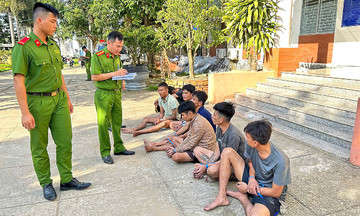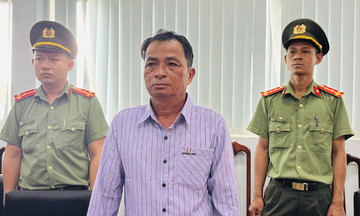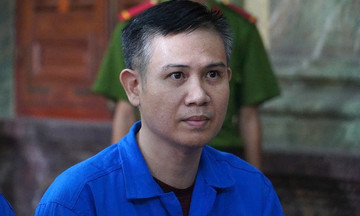The National Cybersecurity Association, in collaboration with the Department of Cybersecurity and High-Tech Crime Prevention (A05, Ministry of Public Security), recently launched the "Influencer Trust" program and introduced the Digital Trust Alliance.
The program aims to evaluate and rank KOLs and key opinion consumers (KOCs) on a 100-point scale, focusing on individuals with influence on Facebook, YouTube, TikTok, Instagram, X (Twitter), and other online platforms.
Accordingly, an online influencer is truly considered a KOL when they are not only famous but also have the ability to significantly impact the thoughts and actions of a community in a specific field. KOCs, on the other hand, are average consumers who can influence others' purchasing decisions by sharing, reviewing, and providing firsthand experiences with products and services.
Data from the Vietnam KOL and KOC Club (under the Vietnam Digital Content and Advertising Association) estimates that there are approximately 300,000 KOLs and KOCs nationwide. This figure is 6 times higher than in 2022. However, the lack of specific evaluation criteria to determine "when someone is considered a KOL" has led to many individuals "self-proclaiming" the title.
5 criteria
According to A05, the "Influencer Trust" program aims to evaluate and rank KOLs/KOCs, providing a basis for "classifying trust levels" in media and advertising activities. This also allows regulatory bodies to establish communication standards that comply with legal regulations.
The ranking system also assists management agencies and businesses in selecting suitable media partners and protecting consumers from misleading content and disguised advertising.
 |
KOLs Den Vau and Tung Duong at the launch of the Digital Trust Alliance on 18/8. Photo: Linh Dan |
KOLs Den Vau and Tung Duong at the launch of the Digital Trust Alliance on 18/8. Photo: Linh Dan
A05 stated that there will be 5 main criteria for evaluating KOLs/KOCs:
- Transparency in content and advertising activities: Labeling posts for commercial purposes to help the public recognize and avoid misunderstandings.
- History of behavior and communication ethics: No legal violations, discriminatory statements, or dissemination of false information. Public and timely corrections are required for any errors.
- Level of real interaction and community feedback: No use of tools to boost virtual interaction, receiving positive feedback from the public, and responding positively during crises.
- Alignment with brand and social values: Appropriate personal image, positive messages, no scandals, and transparent cooperation.
- Compliance with personal data protection regulations: No unauthorized disclosure or collection of personal data, and clear privacy notifications.
The National Cybersecurity Association will score KOLs/KOCs on a 100-point scale. To achieve the maximum score in each main criterion, all requirements must be fully met. Deductions will be applied for any violations or lack of transparency in any criteria.
Three types of trust certificates
Based on the scores achieved, KOLs/KOCs will be granted corresponding certificates by the National Cybersecurity Association, valid for 12 months.
- Ethical Certificate, requiring a minimum score of 90/100: Applicable to influencers who communicate about products and services in highly sensitive categories that can directly impact health, finances, social perceptions, or public trust.
- Professional Certificate, requiring a score of 80 or higher: Applicable to KOLs/KOCs who promote products in common consumer sectors with clear commercial elements but not belonging to particularly sensitive industries.
- Community Certificate, requiring a minimum score of 65: Applicable to individuals with positive content creation activities, community engagement, knowledge sharing, or daily life experiences without direct commercial intent.
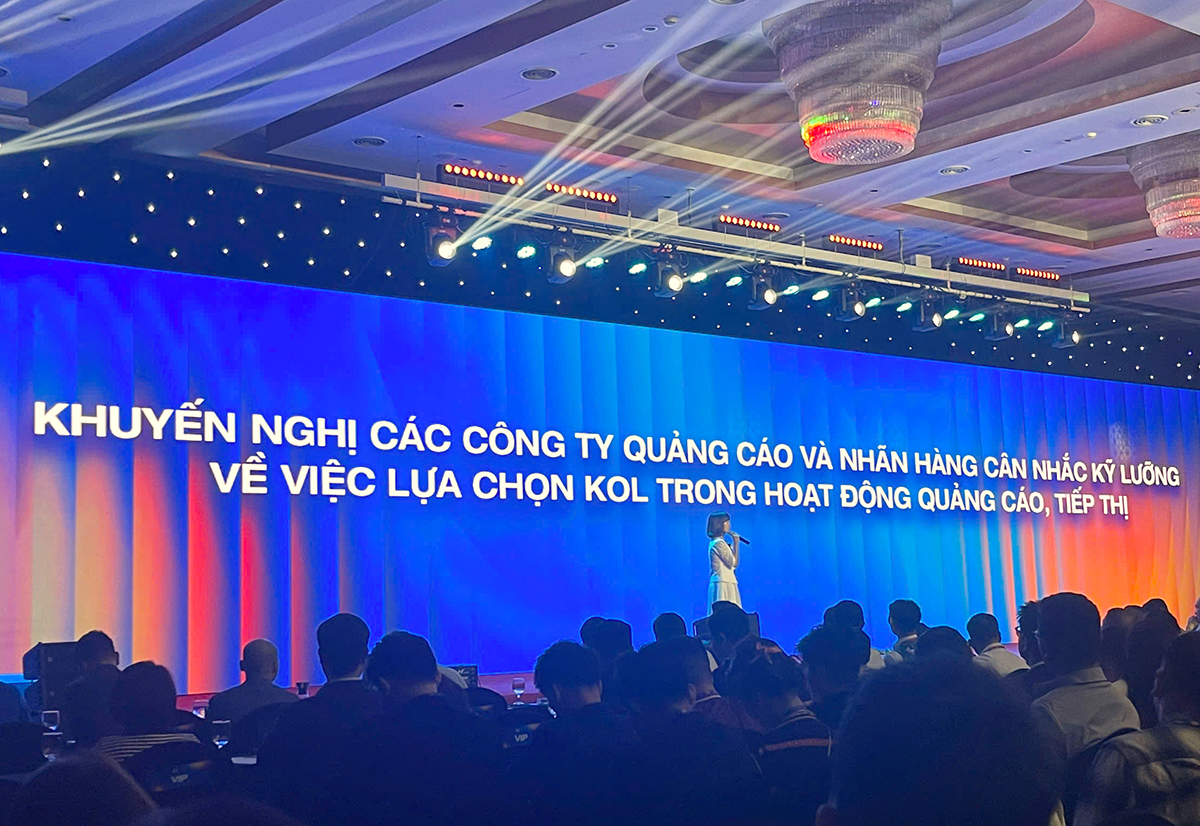 |
A message from the KOL conference on 18/8 in Hanoi. Photo: Linh Dan |
A message from the KOL conference on 18/8 in Hanoi. Photo: Linh Dan
In addition to the minimum total score, KOLs/KOCs must meet other criteria, such as no legal violations in the past 24 months for the Ethical Certificate, 12 months for the Professional Certificate, and 6 months for the Community Certificate. Furthermore, recipients must pass tests on ethics, communication skills, and law.
A05 stated that the certification process involves 7 steps, combining expert evaluation, management verification, and the application of technology to detect virtual interactions and analyze feedback sentiment.
The program will be implemented as a paid service. KOLs will pay fees for training, evaluation, and ranking activities. Those who achieve certification will be considered for membership in the Digital Trust Alliance—a group of KOLs forming a "force of positive influence" from cyberspace to social life.
Membership in the alliance is based on voluntary principles, reputation, responsibility, and shared vision. The Digital Trust Alliance will conduct value-oriented communication; implement community projects such as combating fake news and preventing online fraud; and launch programs and action campaigns to build trust and raise public awareness.
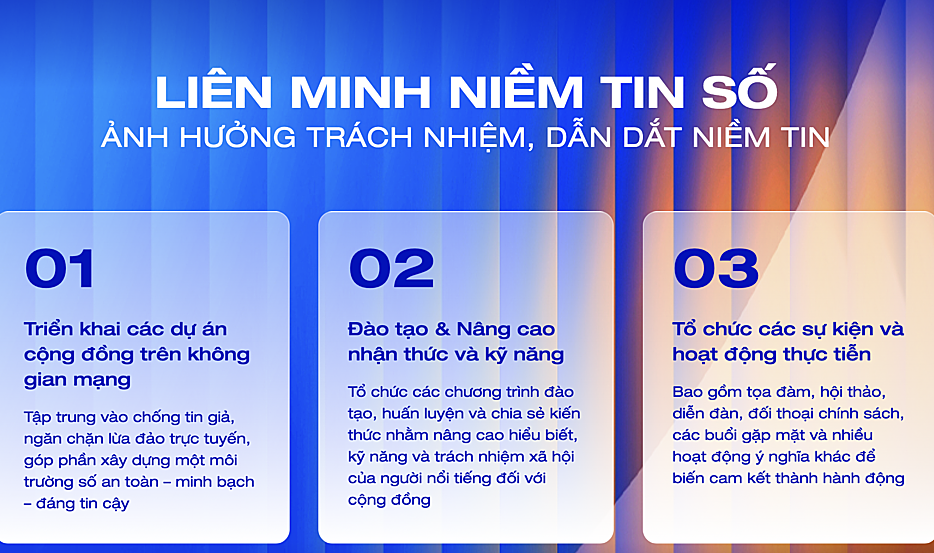 |
Some of the Alliance's main activities. |
As one of 300 KOLs at the KOL Day with the theme "National Rise" held on 18/8, Mai Quyet Thang, who has over 100,000 followers on social media, commented that social media is currently experiencing a situation of "mixed good and bad," with public trust being eroded.
Therefore, having a set of transparent criteria to establish standards for influencers is essential. Trust certificates will then serve as a "seal of guarantee" for the reliability of KOLs/KOCs and help the community distinguish between those who create real value and "virtual phenomena" based solely on "like-baiting tricks."
However, according to Thang, the most crucial factor is transparency and fairness in the evaluation process. If the criteria are clear but the operating mechanism lacks independence and objectivity, the certificates will have no practical value. He believes a rigorous and transparent verification system is needed to prevent "certificate chasing" or formalism.
Regarding the Digital Trust Alliance, Thang believes that participants will have more opportunities by "living" in an ecosystem evaluated by specific criteria. This is also a way to protect personal reputations from the risk of being "labeled" alongside KOLs/KOCs who violate communication ethics or use tricks to attract views. Moreover, "members of the alliance" will have access to high-value cooperation opportunities, protection, training, and legal support.
According to him, joining the Alliance also means placing oneself within a framework. However, individuals and organizations must then adhere to higher standards, be more transparent, and take greater responsibility for the information they convey.
Pham Du







